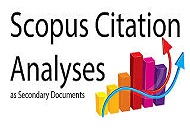Implementasi Model Pembelajaran Berbasis Masalah untuk Meningkatkan Hasil Belajar Siswa pada Mata Pelajaran PKn di SMA Negeri 1 Batukliang Utara
DOI:
https://doi.org/10.33394/jk.v5i1.1386Keywords:
Problem Based Learing, Learnng Outcomes.Abstract
References
Arifin, Z. (2009). Evaluasi Pembelajaran. Bandung: PT Remaja Rosdakarya.
Badrujaman. (2010). Cara Mudah Penelitian Tindakan Kelas untuk Guru Mata Pelajaran dan Guru Kelas. Jakarta: Trans Info Media.
Dalem, I. D. P. A., Nyeneng, I. D. P., & Suana, W. (2017). Pengaruh pembelajaran berbasis masalah terhadap hasil belajar materi Hukum Newton tentang gerak. Jurnal Pembelajaran Fisika Universitas Lampung, 5(3), 1-11.
Djamarah, S. B., & Zain, A. (2010). Strategi Belajar Mengajar. cetakan keempat. Jakarta: Rineka Cipta.
Handika, I., & Wangid, M. N. (2013). Pengaruh pembelajaran berbasis masalah terhadap penguasaan konsep dan keterampilan proses sains siswa kelas V. Jurnal Prima Edukasia, 1(1), 85-93
Ibrahim, A. S. E. (2017). Pengaruh Model Problem Based Learning Terhadap Hasil Belajar Mata Pelajaran Ekonomi Pada Siswa SMA Negeri 1 Palu. Katalogis, 5(4), 9-20.
Khasinah, S. (2013). Classroom Action Research. PIONIR: Jurnal Pendidikan, 4(1), 107-114.
Kemmis, S., & Taggart, M. (2002). The Action Research Planner. Victoria: Deakin University Press.
Nurhadi, B. Y., & Senduk, A. G. (2004). Pembelajaran kontekstual dan penerapannya dalam KBK. Malang: Universitas Negeri Malang Pres.
Oktaviani, A., Reinita, R., & Abidin, Z. (2018). Pengaruh Model PBL Terhadap Hasil Belajar Siswa Pada Pembelajaran Pendidikan Kewarganegaraan Sekolah Dasar. e-Journal Pembelajaran Inovasi, Jurnal Ilmiah Pendidikan Dasar, 6(1), 1-16.
Pupuh, F., & Sobry, M. S. (2010). Strategi Belajar Mengajar melalui Penanaman Konsep Umum & Konsep Islami. Bandung: Refika Aditama
Rabiah, R. (2018). Upaya Meningkatkan Hasil Belajar Matematika melalui Model Pembelajaran Berbasis Masalah di Kelas V SD Negeri 008 Banjar Nan Tigo Kecamatan Inuman. Jurnal Pajar, 1(1), 53-59.
Resvan, R., Suryani, S., & Kaswari, K. (2016). Pengaruh Model Problem Based Learning terhadap Hasil Belajar Pkn Siswa Kelas V SD. Jurnal Pendidikan dan Pembelajaran Untan, 5(12), 1-7.
Riyanto, Y. (2010). Paradigma Baru Pembelajaran: Sebagai Referensi Bagi Pendidik dalam Implementasi Pembelajaran yang Efektif dan Berkualitas. Jakarta: Prenada Media Group.
Roestiyah, N.K. (2001). Strategi Belajar Mengajar. Jakarta: Rineka Cipta
Rozak, M.A. (2005). Implikasi Prinsip-prinsip Belajar Bagi Siswa. Modul tidak diterbitkan. Universitas Negeri Malang.
Sulamiasih, N. K., Dantes, D. N., Candiasa, D. I. M., & Komp, M. I. (2015). Pengaruh Pembelajaran Berbasis Masalah Terhadap Motivasi Belajar Dan Prestasi Belajar Matematika Siswa Kelas VI SD Gugus II Kecamatan Tejakula Tahun Pelajaran 2014/2015. PENDASI: Jurnal Pendidikan Dasar Indonesia, 5(1), 1-7
Sulastri, S., Imran, I., & Firmansyah, A. (2014). Meningkatkan Hasil Belajar Siswa melalui Strategi Pembelajaran Berbasis Masalah pada Mata Pelajaran IPS di Kelas V SDN 2 Limbo Makmur Kecamatan Bumi Raya. Jurnal Kreatif Tadulako, 3(1), 90-103.
Suparni, S. (2017). Meningkatkan Hasil Belajar Siswa Dengan Pembelajaran Berbasis Masalah. JPPI (Jurnal Penelitian Pendidikan Indonesia), 3(1), 36-41.
Windhasari, R., Si, M., & Budhi, W. (2015). Upaya Meningkatkan Proses Pembelajaran dan Hasil Belajar IPA melalui Pendekatan Keterampilan Proses. Trihayu, 1(2): 123-127.
Yusmanidar, Y., Khaldun, I., & Mudatsir, M. (2017). Penerapan Pembelajaran Berbasis Masalah Menggunakan Metode Praktikum Dalam Upaya Meninggkatkan Keterampilan Proses Sain Dan Motivasi Siswa Pada Pokok Bahasan Hidrolisis Garam. Jurnal IPA & Pembelajaran IPA, 1(1), 73-80.
Downloads
Published
How to Cite
Issue
Section
Citation Check
License
License and Publishing AgreementIn submitting the manuscript to the journal, the authors certify that:
- They are authorized by their co-authors to enter into these arrangements.
- The work described has not been formally published before, except in the form of an abstract or as part of a published lecture, review, thesis, or overlay journal.
- That it is not under consideration for publication elsewhere,
- That its publication has been approved by all the author(s) and by the responsible authorities – tacitly or explicitly – of the institutes where the work has been carried out.
- They secure the right to reproduce any material that has already been published or copyrighted elsewhere.
- They agree to the following license and publishing agreement.
Authors who publish with JK agree to the following terms:
- Authors retain copyright and grant the journal right of first publication with the work simultaneously licensed under a Creative Commons Attribution License (CC BY-SA 4.0) that allows others to share the work with an acknowledgment of the work's authorship and initial publication in this journal.Â
- Authors are able to enter into separate, additional contractual arrangements for the non-exclusive distribution of the journal's published version of the work (e.g., post it to an institutional repository or publish it in a book), with an acknowledgment of its initial publication in this journal.
- Authors are permitted and encouraged to post their work online (e.g., in institutional repositories or on their website) prior to and during the submission process, as it can lead to productive exchanges, as well as earlier and greater citation of published work.
- Open Data Commons Attribution License, http://www.opendatacommons.org/licenses/by/1.0/ (default)

This work is licensed under a Creative Commons Attribution-ShareAlike 4.0 International License.








